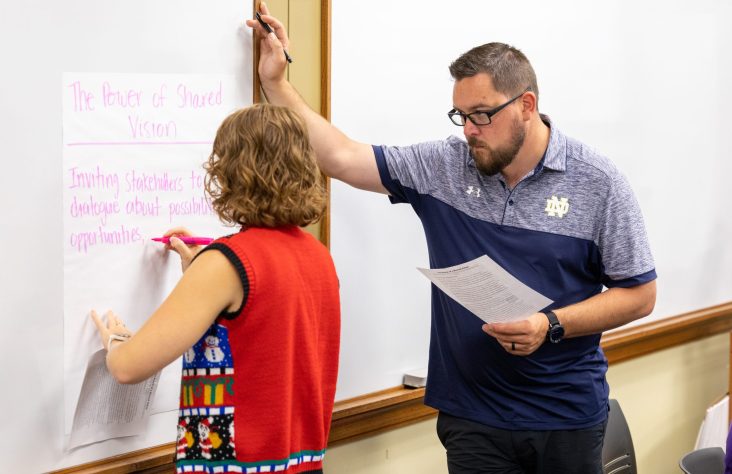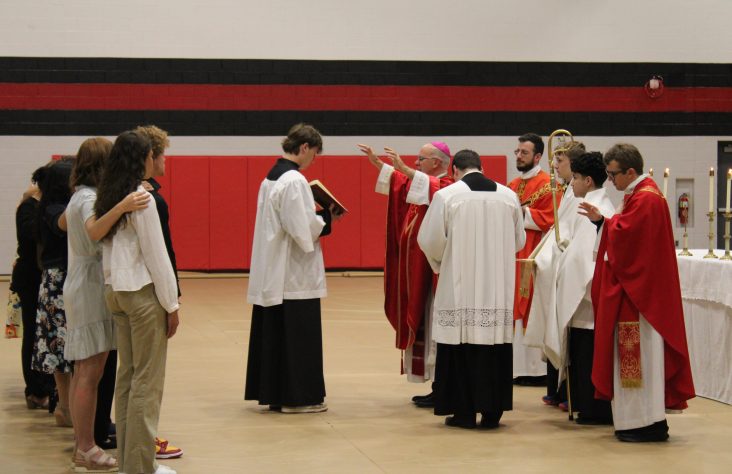April 14, 2010 // Uncategorized
Was Jesus a tree hugger?
By Linda Furge
Opening prayer
O God, You call us to act as Your stewards of all creation on our fragile and beautiful planet. You bless us abundantly. All that we have comes from You. Help us to live our lives simply and with gratitude and to grow ever more aware that our everyday actions have consequences that reach far beyond us. We ask this in Jesus’ name. Amen.
Commentary
I bet the title above got your attention! It sure caught mine and was from an article by Jim and Susan Vogt, Everyday Catholic, April 2008. Whether you are amused (or not) by their choice of words, it certainly asks a provocative question — one still very much of interest and conflict today, given the recent disclosures about data usage in the global warming debate.
So, was Jesus a tree hugger? Well, He certainly walked a lot, ate local foods, used water from local wells and lived a simple lifestyle. Faith and earth stewardship are intricately linked from the very beginning of our Christian tradition. In the Genesis story, we read: “Have dominion over the fish of the sea and over the birds of the air and over every living thing … See, I have given to you every plant … every tree … God saw everything that He had made, and indeed, it was very good.” — 1:28-31 “The Lord God took the man and put him in the garden of Eden to till it and keep it.” — 2:15
These words give men and women a unique responsibility from God to care for the created world in which we live and to act as good stewards of its abundant resources. In this sense, stewardship means that we are to live responsibly within creation, not to act upon it as though we are outside it and unaffected by whatever happens to it.
Tough questions
In theory, being good stewards of creation are easy words with which we can all agree. However, this kind of stewardship may not always be so easy to put into practice. Here are some examples. We drive cars and other motor vehicles. It is a well-established fact that this behavior has a huge impact on our environment. So we make a resolution to carpool or ride public transportation. While this is an environmentally sound decision, in real life it means that time is taken away from other good choices, like spending time as a family or getting necessary chores done. For those of us living outside the city, driving is simply the only practical way we can get around!
Growing a garden is good stewardship, saves money, gives us exercise and refreshes the soul. We once had an orchard and large garden and wanted to give away our extra produce to friends and local food kitchens. We discovered very quickly that fruits and vegetables not perfect in every way were simply thrown away — or not even accepted in the first place. When we tried to donate our extra produce, we were told food kitchens were not allowed to use fresh produce from local gardens. The only way we could ensure perfect fruit and vegetables was to use pesticides — not exactly an environmentally sound solution!
One final example: all our children live far away; one even lived in Japan. Some of our family relatives live in Germany. Airfares are expensive, and air travel uses lots of fossil fuel. Does being good environmental stewards mean we should not drive or fly to visit those we love? Or travel to learn and appreciate other cultures when the opportunity arises?
Think globally, act
locally … with gratitude
No one seems to have one “best” answer to these tough questions — but that does not absolve us from our responsibility as good earth stewards. So, what are some things we can do right now to make a difference? First, we can live our lives with gratitude for all we have received. We are fortunate to live in a “first-world” country. That, in and of itself, is something for which we should always be grateful. A profound sense of gratitude to God for the abundant resources to which we have daily access should make us ever more aware of the fact that we do not have to struggle, as many do, to simply survive.
… with accountability
Second, we can live knowing that we, as stewards, may be called by our Creator to account for our use of creation’s resources. While we are not solely responsible for what we do, or fail to do, with the gifts we (collectively) have received, we will be asked how well we use the abundant resources we (individually) are given. Practically speaking, I believe we will be held accountable for the food we waste while others starve, for the things we accumulate in excess while others live without the necessities of life. Jesus is pretty clear about the difficulty rich people will have getting into heaven; we are the rich people of our time.
… with generosity
Thirdly, we can live generously sharing our resources and gifts with others from a Christian sense of justice and love. Americans are known for their generosity. We need to continue that tradition and seek additional ways to share what we have with those less fortunate.
… with awareness and advocacy
Finally, we need to become advocates for responsible earth stewardship. Awareness of how our actions impact others and simplifying our lives accordingly is a good first step. There is much each of us can do to make a difference. The most fundamental motive for our actions should be the knowledge that we share in God’s creation. Living that out in our daily lives by what we do and say helps us become more whole and more holy.
We can make a difference! We can fill our world with Christ’s spirit of love, charity, justice and peace through our actions as responsible earth stewards. As Pope Benedict says in his message for World Day of Peace 2010, “If you want to cultivate peace, protect creation.”
The best news. Delivered to your inbox.
Subscribe to our mailing list today.





